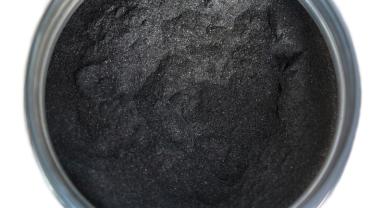
Activated charcoal is a molecule that has been used for over 200 years to help support the elimination of certain toxins in the human body. It is known as a binder, which is a type of molecule that exhibits adsorptive properties to help support the normal clearance of environmental toxins.
Adsorption is a process that involves surface attachment to the binding molecule. This is in contrast with absorption, where the particle is integrated into the molecule or solution. Essentially, molecules that exhibit adsorptive qualities may have an increased potential to bind and eliminate more toxins when compared to those that only absorb. Binding through adsorption may help support toxin elimination and normal detoxification. Furthermore, activated charcoal is a chemically processed molecule that is modified to reduce particle size and increase porosity and surface area in order to maximize its adsorptive potential.
Activated charcoal acts by adsorbing certain toxins in the gastrointestinal tract; this helps prevent bloodstream infiltration and helps facilitate toxin excretion. It is used in certain clinical settings to help support gastric decontamination and help the body eliminate certain harmful substances.
The unique molecular features of activated charcoal contribute to the binding capabilities. These include shape selectivity, where the diameter of the pore size on each binding molecule is contributory to the selectivity of binding. In addition, its kinetic profile ensures that it is energetically unfavorable for binders to attract other binders. Finally, the chemical bonding capabilities of activated charcoal and other binders are wide-ranging; binders such as activated charcoal have been shown to chemically bond to toxins through multiple types of bonding: hydrogen, ionic, and covalent. Activated charcoal, for example, has been shown to bond π-π and cation-π. Because of this bonding selectivity, it essentially doesn't bond to other agents like itself, ensuring maximal support in the healthy elimination of toxins.
Research suggests that activated charcoal may also help support the body’s response to Escherichia coli-induced diarrhea and may help aid in the elimination of certain microbes. Laboratory studies have shown that activated charcoal can help reduce blood levels of endocrine-disrupting chemicals such as bisphenol-A and phthalates. Animal studies indicate it may also help support the reduction of oxidative stress.
While more research is needed before clinical conclusions can be made, activated charcoal may help support normal detoxification, healthy liver function, antioxidative status, and immune and cellular health. It may also help support elimination pathways and healthy detoxification in the gastrointestinal tract.
By Dr. C Ambrose, ND, MAT